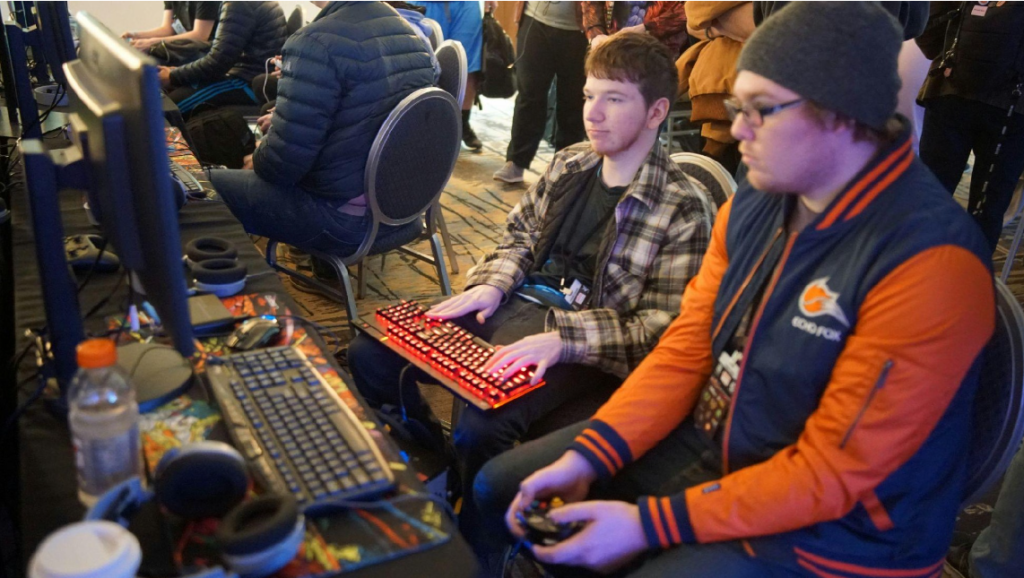Esports vs Traditional Sports: HowBetting Markets Are Evolving

The gaming world is undergoing a dramatic shift, and it’s happening in the betting markets.
Esports, once a niche domain of dedicated gamers, has exploded into a billion-dollar industry
with a thriving betting scene.
Traditional sports remain the choice of many bettors, but face pressure from a younger,
digitally native generation. As esports and traditional sports collide, understanding how
betting markets are evolving is essential to see where the future is headed. This
transformation isn’t just about new games—it’s about new audiences, platforms, and
behaviors that are reshaping how, when, and why people place their bets. Let’s dive into the
landscape.
The Journey from Skin Gambling to Sophisticated Markets
The beginnings of esports betting were anything but glamorous. In the early 2010s, betting
primarily occurred through unregulated ‘skin gambling’ sites, where cosmetics from games
like CS:GO were treated as currency. It created a gray market, riddled with underage
gambling and legal concerns. Traditional sports, governed by long-established regulatory
bodies, had long consigned such chaos to the dustbin of history.
The early 2010s marked a turning point for esports betting, as regulated bookmakers began
offering dedicated esports markets. Over the next decade, particularly during the COVID-19
pandemic, the sector experienced rapid growth. Major betting operators entered the space,
introducing the same legitimacy and regulatory oversight long established in traditional
sports. According to Sports Illustrated, the esports betting industry was valued at over $2.5
billion in 2024, with projections indicating it could reach $3.2 billion by 2028.
Modern Esports Betting Mirrors Traditional Sports
Today, the gap between esports betting and traditional sports betting is smaller than ever.
Major platforms like FanDuel offer bets on esports events in the same way they do for football
or basketball, treating them as part of the broader sportsbook. Wagers are available on
moneylines, handicaps, over/under on maps, kills, and rounds. The industry even offers niche
bets, such as predicting the number of bomb defusals in Counter-Strike 2.
Where esports markets stand out is their dynamism. Odds react within seconds, powered by
providers like Oddin.gg, that blends statistical models, machine learning, and human
expertise. Lines adjust almost in real-time, capturing the rapid shifts that are unique to
esports titles like League of Legends, Valorant, and DOTA 2. In comparison, traditional sports
maintain slower, more deliberate odds movement based on decades of historical data.
The Rise of Prop Betting and Micro-Markets
One of the most significant evolutions within esports betting has been the rise of prop
betting. Unlike traditional moneyline bets, prop bets focus on specific in-game events. These
include wagers like whether a player will exceed a set number of kills or predicting who
scores first in a match.
FanDuel research highlights how this type of granular betting experience—often missing in
traditional sports—matches the shorter attention spans and the instant gratification sought
by the younger audience. In esports, where a Valorant round lasts just 90 seconds, prop
betting keeps engagement high.
Traditional sports are responding by offering more in-play bets, but the pace and innovation
of esports betting continue to set a new standard.
Regulation and Integrity: Lessons from Both Worlds
Both sectors face challenges regarding integrity, but their approaches differ significantly.
Esports, with its decentralized structure, initially struggled with match-fixing and fraudulent
betting activities. Over time, groups like the Esports Integrity Commission, alongside partners
like Oddin.gg, helped bring transparency and safeguards. Betting companies now work
directly with tournament organizers, improving real-time fraud detection.
Traditional sports have long been under the governance of established entities like FIFA or
the NFL. This infrastructure offers robust frameworks for ensuring fair play. However, even
these organizations are not immune to controversies, as seen with match-fixing scandals in
football and tennis. The esports industry’s challenge remains its relative youth and
decentralized nature, which makes enforcement more complicated.
KYC (Know Your Customer) checks for identification purposes, self-exclusion options, and
deposit limits are now widespread across esports and traditional sports betting platforms.
These measures protect users and maintain the credibility of the betting industry as a whole.

What’s Fueling the Esports Betting Boom?
Esports has natural advantages when it comes to cultivating a new generation of bettors.
According to Gitnux market research, around 65% of esports bettors are under the age of 34.
A new generation that demands speed, interaction, and social engagement – characteristics
built into platforms like FanDuel.
Social media plays an important part in promoting esports. Winning bets are celebrated on
Discord channels and TikTok, creating viral moments that traditional sports struggle to
replicate. While sports like football and tennis attempt to modernize with TikTok challenges
and augmented reality, they still cannot match the frenetic energy and constant innovation of
esports environments.
Traditional Sports: Adapting to a New Landscape
Despite the meteoric rise of esports, traditional sports betting remains massive. Events like
the FIFA World Cup and Super Bowl continue to break betting records year after year. The
familiarity, rich data, and decades-long emotional attachment ensure that traditional sports
won’t be displaced anytime soon.
However, the demographic shift is undeniable. Older bettors continue to favor pre-match
bets, while younger users are looking for instant, in-play options. Platforms have responded
by adding features like live betting during streams and micro markets, similar to esports
offerings. Virtual sports, where users bet on CGI simulations of tennis or horse racing, have
also emerged to fill off-seasons, blending the virtual with the traditional.
Traditional sports have longevity on their side, but they must continue adapting rapidly to
maintain relevance with a digitally native audience.
Esports and Traditional Sports: A Blended Future?
The once-clear lines between esports and traditional sports are blurring. Hybrid events like
FIFA’s eWorld Cup, where physical athletes and esports stars both shine, demonstrate a
convergence. Betting markets reflect this blending, offering odds not just on real-life
performances but on virtual equivalents.
Platforms are merging best practices from both domains. Real-time odds adjustments, micro
bets and fantasy sports hybrids are becoming standard features. AI and machine learning,
pioneered by esports-focused companies, are now used to fine-tune odds in NFL, NBA, and
Premier League betting.
The future of betting isn’t about choosing sides between esports and traditional sports.
Instead, it’s about convergence, innovation, and giving bettors the ultimate control over how
they engage with competition, whether on a field or on a screen.



